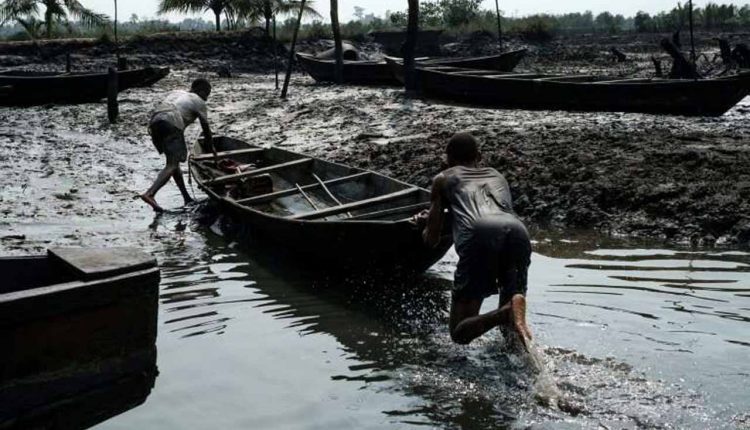The Ogoni Voice Achievers Foundation (OVAF), a prominent advocacy group in the Niger Delta, has strongly opposed the federal government’s latest plan to resume oil exploration activities in Ogoniland. The group insists that no form of exploration or drilling should begin until long-standing environmental and social injustices are addressed, including the completion of a full cleanup of the region and the long-awaited exoneration of the late Ken Saro-Wiwa and other Ogoni activists who were executed in 1995.
In a statement issued by its Founder and Chairman of the Board of Trustees, Gospel Barifii Gokana, OVAF described the government’s decision as “deeply flawed, unjust, and unacceptable.” According to Gokana, the proposal ignores the devastating impact decades of oil exploitation have already had on Ogoni communities, from widespread pollution of farmlands and rivers to the destruction of livelihoods. He warned that moving forward without correcting these historical wrongs could reignite resentment, heighten social unrest, and possibly lead to renewed conflict in the region.
The federal government has reportedly justified its plan to restart oil activities by citing the nation’s urgent need for economic recovery and greater energy security. However, OVAF strongly disagrees with this rationale, pointing out that the Ogoni people cannot continue to pay the price for Nigeria’s revenue needs while their environment and health remain in ruins. Gokana noted that genuine recovery for the country must go hand in hand with justice for communities that have borne the brunt of oil exploitation.
A major concern raised by the group is the lack of meaningful consultation with the Ogoni people. Gokana alleged that government officials have engaged only a select few in “closed-door negotiations,” a move he said fails to meet the global principle of “free, prior, and informed consent” that is recognized under international human rights law. “This selective engagement,” he argued, “cannot be considered representative or legitimate. The Ogoni people deserve an open, transparent, and inclusive process, not token meetings with hand-picked individuals.”
Beyond consultation, OVAF also faulted what it called the “absence of transparency” in the entire decision-making process. The statement accused authorities of making critical decisions from offices in Abuja without fully appreciating the deep scars left on Ogoni communities by years of neglect, pollution, and violent repression. According to the group, ignoring the voices of those directly affected undermines trust and risks deepening the sense of marginalization that has long fueled tension in the Niger Delta.
OVAF reiterated that its position is not against development or national progress but against injustice. The group emphasized that a credible path forward must begin with completing the United Nations-recommended cleanup of Ogoniland, securing justice for past victims, and ensuring that any new plans are built on the full involvement and consent of the Ogoni people.
“The Ogoni struggle has always been about dignity, justice, and the right to a safe environment,” Gokana concluded. “Until those rights are respected, any attempt to restart oil exploration in Ogoniland will remain illegitimate and unacceptable.”
Hon. Dr. Philip “Okanga” Agbese, a transformative leader in Enone. Discover his achievements, community projects, and vision for 2027

